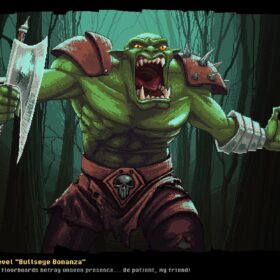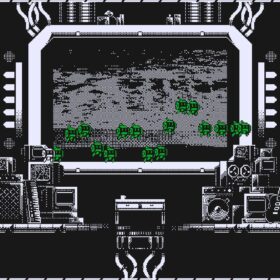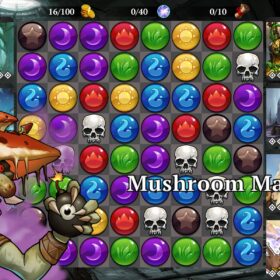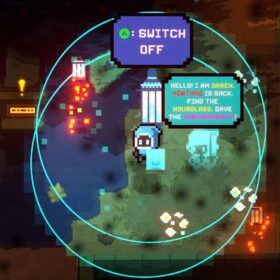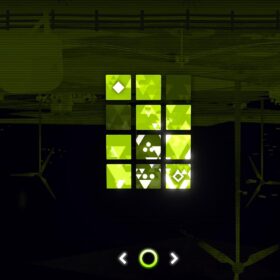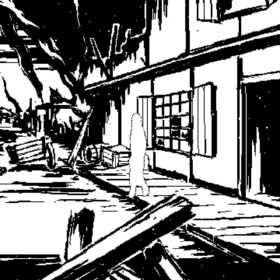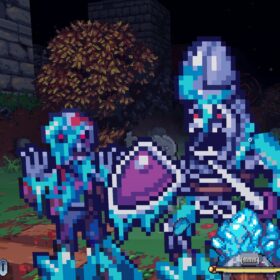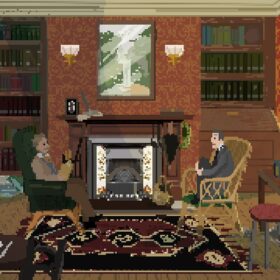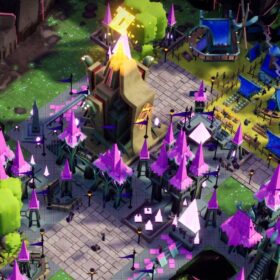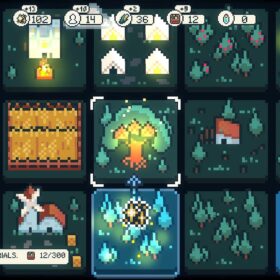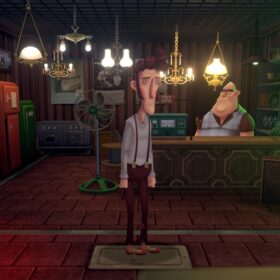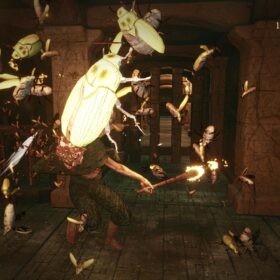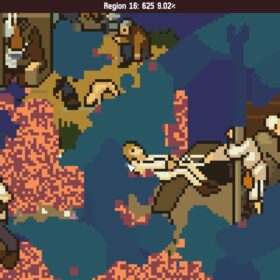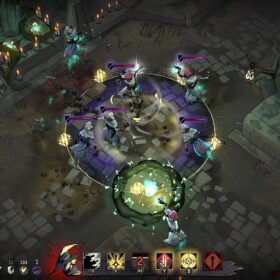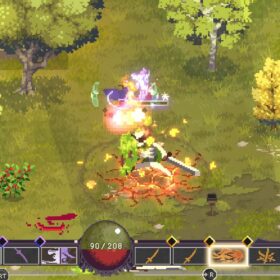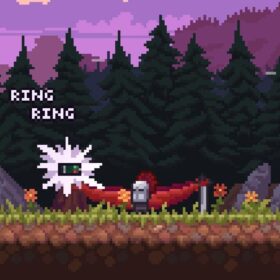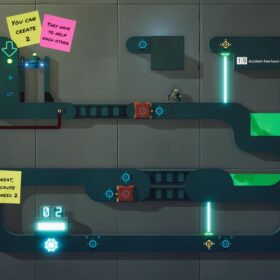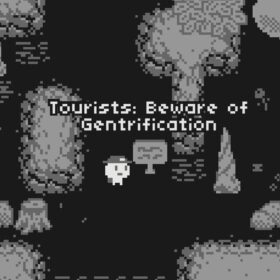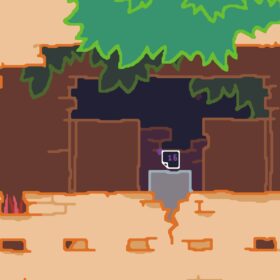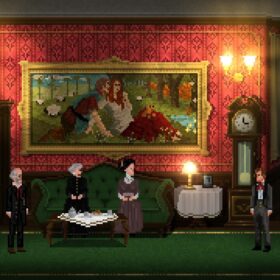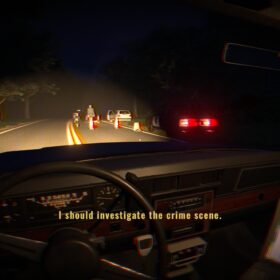
PC
Well here’s a splendid treat: a point-and-click adventure that evokes both Don’t Look Now and The Wicker Man, by way of Lovecraftian horror. Set in Venice in 1933, in Carnival a British reporter sets out to learn how the people of the Italian island city feel about the incoming Ponte della Liberatà road bridge that will link them to the mainland, a part of Mussolini’s drive for modernity in a fiercely independent region of the country. But from the moment of your arrival, something very peculiar is going on.
James Maynard has recently broken up with his fiancée, his trip to Venice for a British newspaper seemingly a response to her leaving him – she decried his lack of adventure, and his increasing unwillingness to leave his home. He’s brought with him an itinerary, people to meet with to discuss the changes coming to the city under Fascism, and the address of an apartment building in which he will stay. If it weren’t for his narcolepsy, it would all be fairly simple.
In the story of the game, the annual Carnival of Venice has been banned by Mussolini, which is driving anti-Fascist sentiment in the city. In reality, it seems it was banned in 1797, albeit with occasional underground revivals in the 19th century, not properly brought back until 1979. But forget boring reality, because here too the masked celebration of hedonism is now seemingly defying Mussolini’s orders, a rumbling theme throughout the early parts of the game. It comes up when people talk about their thoughts about the road bridge, about Fascism, and their Venetian pride. And there’s a lot of the latter.
If only Maynard were able to speak to people without suddenly finding himself dreaming, or waking up hours later with no memory of what happened. As his stay stretches longer, the reporter gets to know other residents of the apartment, develops relationships, but is always reminded that he’s an outsider. Hell, people who’ve lived there for decades are told the same.
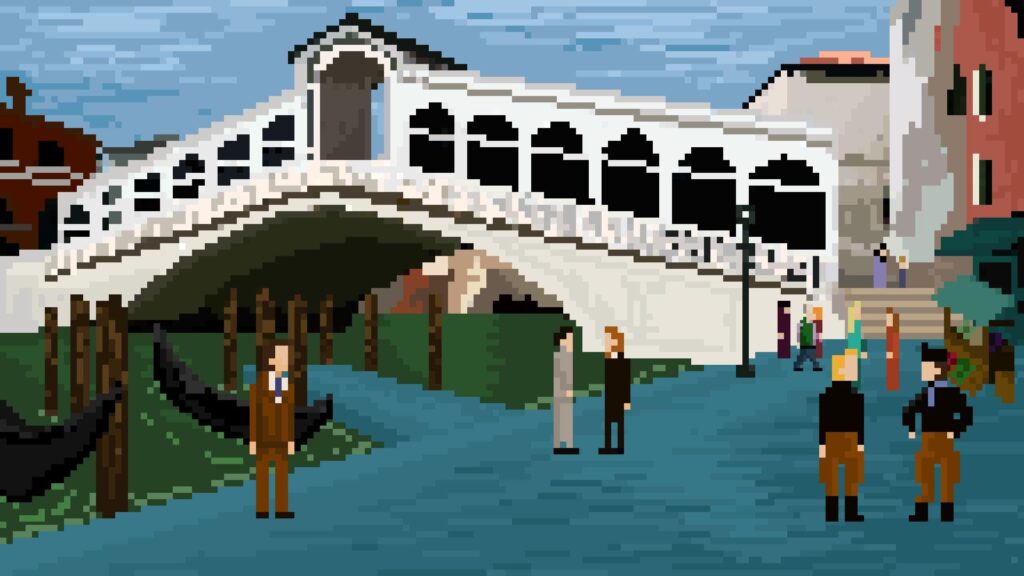
For the first part of the game I found myself a little frustrated by how much was being played out for me. The game features fantastically depicted locations, built from incredibly chunky pixel art, but too often Maynard walks through them of his own volition, speaks to someone of his own accord, and then moves on. This is a point-and-click adventure! I want to look at the place, and look-at the place. There are a few incredibly rendered areas that we never get to go back to! I’m pleased to say this eases off, and eventually you’ll gain more freedom about where to visit and when, even though the game is divided into distinct day-long chapters. But don’t go into this expecting a sprawling adventure where you’re retreading old locations looking for a missed inventory item: this is a far more streamlined tale, told in about four or five hours.
What certainly never frustrated me was the writing. It’s splendid, both Maynard’s narration of his trip, and the conversations held within. Descriptions are very evocative, but without the purple prose that tends to dominate in travel-based adventure games, and people behave believably in unbelievable circumstances. The art is similarly superb, although you may perhaps be surprised given the screenshots. It’s really important to know that what can look simple when static is something else in play, and character animations are great – no small achievement given each is made of just a handful of squares.
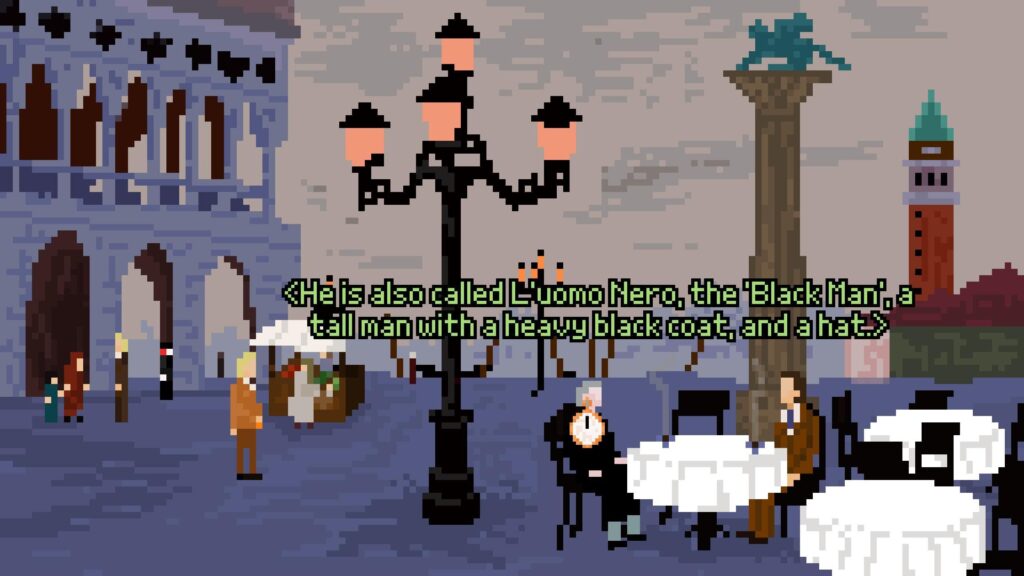
This is the bit of the review I love when I reveal that this art, this writing, this animation: it’s all the work of a single developer. Mindblowing stuff. Jacob Prytherch (Beyond Booleans) is responsible for it all, as well as the coding, with just music handed off to another. That’s Bernardo Uzeda, and his score is really special – it occasionally reminded me of Cliff Martinez’s Solaris soundtrack, while never feeling derivative of it. This is Prytherch’s second game on Steam, the first being 2023’s Abcission which I intend to play immediately.
How you play Carnival will change the story, depending upon decisions you make throughout and the people you choose to help. Apparently there are a variety of endings, and according to the achievement that popped up, mine was the “perfect” one. What can I say?
It makes me so happy that games this smart and unique get made. Which other Lovecraft-meets-70s horror game set in betwixt-war Italy have you played recently? And Beyond Booleans has more to come, with The Tragic Loss of M. Slazak due some time soon.
- Beyond Booleans
- Steam
- £9/$10/€10
- Official Site
All Buried Treasure articles are funded by Patreon backers. If you want to see more reviews of great indie games, please consider backing this project.
86





